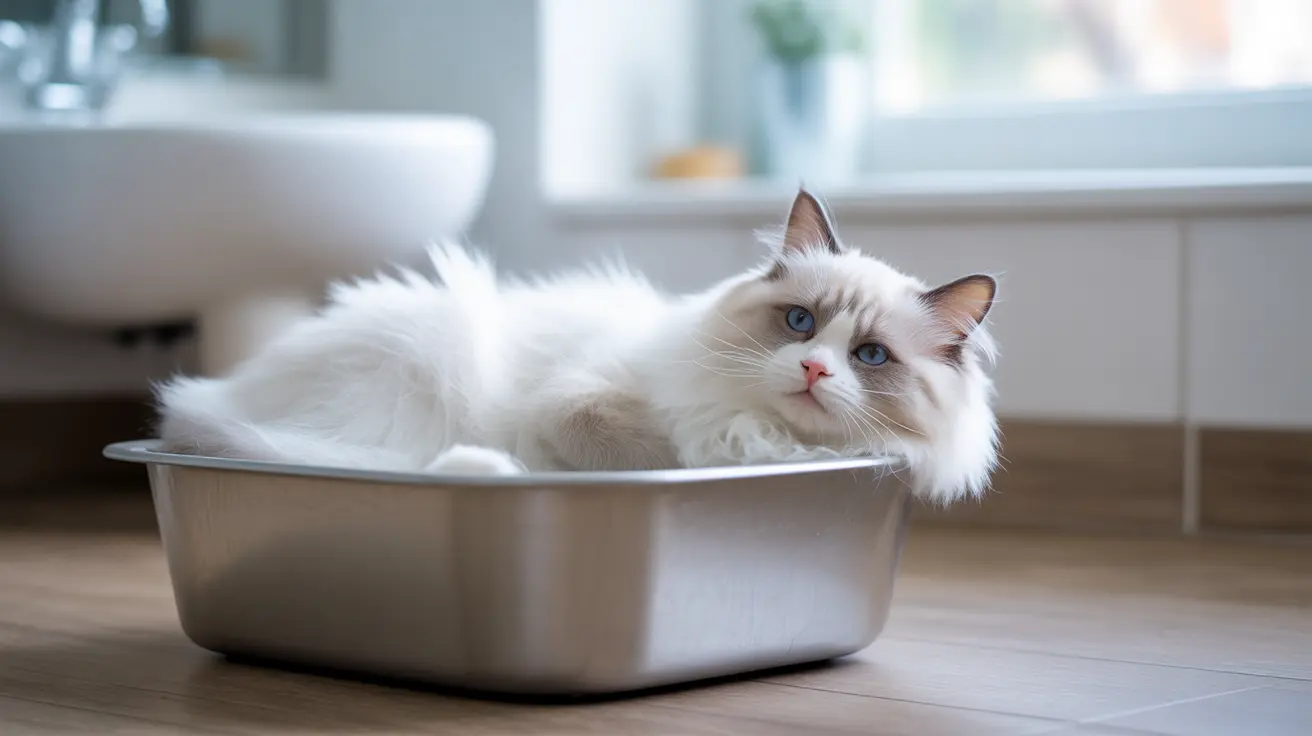Medical Causes: When Your Cat's Health Is the Culprit
Medical issues are often the primary reason cats start sleeping in their litter box. Several health conditions can trigger this behavior:
Urinary Tract Problems
Cats experiencing urinary tract infections, crystals, or bladder stones may stay in the litter box due to frequent urination needs or discomfort. These conditions can make them feel they need constant access to their box.
Mobility Issues and Pain
Arthritis and joint problems, especially common in older cats, can make it difficult for them to enter and exit the litter box. Some cats may choose to rest there rather than make repeated painful trips.
Stress and Anxiety: Understanding Emotional Triggers
Cats often seek security when stressed, and the litter box can become a safe haven:
Environmental Changes
Moving to a new home, introducing new pets, or even rearranging furniture can trigger anxiety. The familiar scent and enclosed nature of the litter box can provide comfort during these transitions.
Multi-Cat Household Dynamics
In homes with multiple cats, competition for resources or territorial disputes might lead some cats to claim the litter box as a safe space or defensive position.
Age-Related Factors and Special Circumstances
Senior Cat Considerations
Older cats may sleep in the litter box due to confusion from cognitive decline or physical limitations. This behavior requires special attention and often veterinary intervention.
Pregnancy and Nesting
Pregnant cats sometimes choose the litter box as a potential nesting site, especially as they near their due date.
Solutions and Prevention Strategies
Creating Safe Alternatives
Provide cozy hiding spots and elevated resting areas throughout your home. This gives your cat secure options beyond the litter box.
Environmental Modifications
Ensure you have enough litter boxes (one per cat plus one extra), placed in quiet, accessible locations. Consider adding low-entry boxes for seniors or cats with mobility issues.
Medical Intervention
Schedule a veterinary check-up if this behavior persists for more than a few days or is accompanied by other symptoms like changes in appetite or elimination habits.
Frequently Asked Questions
Why is my cat suddenly sleeping or spending a lot of time in the litter box?
Sudden changes in litter box behavior often indicate either a medical issue or significant stress. Common causes include urinary tract problems, anxiety from environmental changes, or physical discomfort.
Could my cat's litter box sleeping be a sign of a urinary tract or other medical problem?
Yes, sleeping in the litter box can be a sign of various medical issues, particularly urinary tract infections, bladder stones, or kidney problems. Any sudden change in litter box behavior warrants a veterinary examination.
How can stress or changes in the home cause my cat to sleep in the litter box?
Cats seek familiar, enclosed spaces when stressed. The litter box combines these qualities with their own scent, making it an attractive refuge during times of anxiety or environmental change.
What should I do if my older or arthritic cat is resting in the litter box frequently?
Consider switching to a low-entry litter box, providing joint supplements (with veterinary approval), and ensuring easy access to comfortable resting spots throughout your home. Consult your vet for pain management options.
How can I help reduce my cat's anxiety or territorial behavior related to the litter box?
Provide multiple litter boxes in quiet locations, use feline pheromone products, create additional hiding spots, and maintain a consistent routine. For severe cases, consult with your veterinarian about anti-anxiety medications or behavioral therapy.
Conclusion
While finding your cat sleeping in the litter box can be concerning, understanding the potential causes helps you take appropriate action. Whether the root cause is medical, emotional, or age-related, prompt attention and proper intervention can help resolve this behavior and ensure your cat's wellbeing.
Remember, when in doubt, always consult with your veterinarian to rule out medical issues and develop an appropriate treatment plan for your cat's specific situation.






